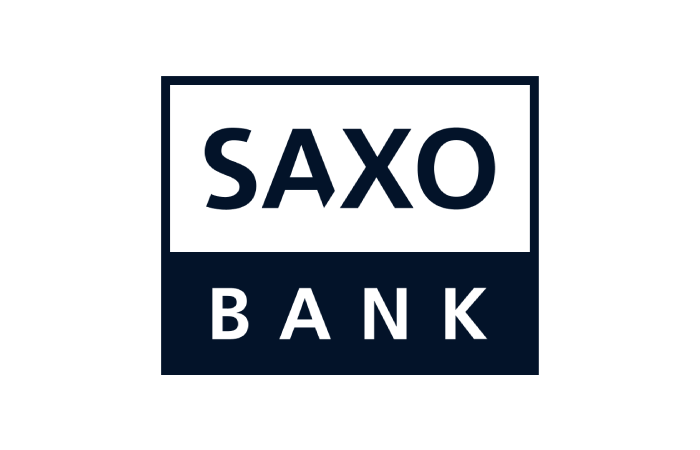In my best S&P 500 post, I concluded that CSPX, the Ireland-domiciled ETF, was the best ETF to invest in for Singaporeans, beating its US-domiciled counterparts like VOO and SPY.
This is due to the dividend withholding tax savings that we as Singaporeans get to enjoy.
While I’m personally not investing in Ireland-domiciled ETFs, if you’ve decided to invest in them, your next step would be to pick the best broker, which is usually the broker with the lowest fees.
Since Ireland-domiciled ETFs are listed on the London Stock Exchange (LSE), you’ll need a broker that allows trading on the LSE.
In this post, I’ll take a closer look at the brokers that are available to determine which is the best one to use.
Which Brokers Can Be Used?
The options that remain are Interactive Brokers (IBKR), Standard Chartered Online (SCO), and Saxo. Bank brokerages will not be considered due to their atrociously high commission fees and custodian fees for foreign investments.
Here is a table summarising their fees.
| Broker |  |
 |
 |
| Commission Fees |
0.05%, min 1.70 USD |
0.25%, min 10 USD |
0.10%, min 8 GBP |
| FX Fees |
~ 0.002%, min 2 USD |
N/A | 0.3% |
| Recurring Fees |
month |
N/A | 0.12% / year |
| Fractional Shares |
Yes | No | No |
Note: Fees were tabulated assuming that we are investing in CSPX. Since CSPX is denominated in USD, the commission fees for IBKR and SCO are in USD. If you are investing in an ETF that is denominated in a different currency, the fees would also be in a different currency, but at approximately the same rate.
1: IBKR
At first glance, IBKR charges the lowest commission fees among the 3 available brokers – about 80% cheaper.
However, the thing to take note of about IBKR is its monthly recurring activity fee, which stands at 3 USD/month if you’re 25 years old or younger and 10 USD/month otherwise…
Or not!
No, the strikethrough text in the table above is not a typo or an error.
Rather, IBKR has just removed the monthly activity fee for its customers – so there is no longer any recurring fee to pay.
This is amazing news because this fee is what has deterred most people from using IBKR so far.
It has been the ‘but’ behind the too-good-to-be-true low commissions that IBKR charges.
Now, that is no longer the case – investors can enjoy IBKR’s low commission fees without having to worry about any drawbacks.
Another good thing about IBKR is that it allows investors to own fractional shares, ie investors are able to buy less than 1 full share of a particular share.
This is useful because it allows investors to be more efficient with their money – if you have $500 to invest, you can invest the full $500.
Meanwhile, for other brokers, if you have $500 to invest but 1 share of the stock/ETF you want to invest in costs $400, you will only be able to buy 1 share for $400, which leaves the other $100 idle.
However, the caveat here is that fractional shares are only supported for US-listed stocks/ETFs.
This means that Ireland-domiciled ETFs like CSPX aren’t available for fractional shares, but it’s a handy feature nonetheless if you want to invest in US-listed securities.
2: SCO
Next, SCO also doesn’t charge any recurring fees.
The only fees you will be charged are commission fees, so if you don’t place any trades, you will be charged 0 fees.
This means that if you happen to not be able to allocate some money for investing, you don’t have to worry about paying unnecessary fees.
However, the trade-off, in this case, is that the commission fees charged by SCO are relatively high at 10 USD/GBP, depending on the currency of the ETF you’re investing in.
3: Saxo
Finally, we have Saxo.
Saxo is the only broker among the 3 that charges a recurring annual fee of 0.12% of your assets per year, charged monthly.
This means that you’ll be paying fees every month, regardless of whether you make any trades.
Saxo’s commission fee is also relatively high compared to IBKR, and fairly similar to SCO.
You can’t avoid paying fees every month because of the annual fee, and when you do place trades, you’re charged a high commission fee.
Which Is The Best Broker?
After looking at the costs associated with the various brokers, which do I think is the best?
Up until yesterday, it was between either IBKR or SCO, where which ends up being better for you depends on your personal situation.
But now that IBKR has done away with their monthly activity fees, the winner is, hands down, no questions asked, IBKR.
IBKR offers low commissions, fractional shares, no recurring fees, and highly competitive FX rates which I didn’t mention in this post for simplicity – which is everything an investor can ask for in a broker.
While SCO also charges no recurring fees, its commission fees are significantly higher than IBKR.
With Saxo charging a recurring annual fee on top of their high commission fee, I really can’t think of a reason to use Saxo.
Closing Thoughts
There are 3 brokers to consider using – IBKR, SCO, and Saxo – among which, IBKR is the definitive winner.
Investing in Ireland-domiciled ETFs warrants trading on the LSE, which used to be relatively expensive in Singapore.
Now that IBKR has removed its monthly activity fee, this is no longer the case because its fees are now ridiculously low, beating even the likes of low-cost brokers Tiger Brokers and Moomoo.
This makes investing in Ireland-domiciled ETFs extremely affordable, which is advantageous to us as Singaporean investors.
This means that my current investing strategy of investing in US-domiciled ETFs with low-cost brokers will definitely need to be relooked, and I’ll keep you guys updated in a future post.
Do you invest in Ireland-domiciled ETFs? Which broker do you use and why? Let me know in the comments below!

4 replies on “Best Broker For Investing In Ireland-Domiciled ETFs”
Just a something to note. Fractional shares is not applicable to non-us markets for interactive brokers.
https://seedly.sg/posts/hi-guys-for-those-of-you-that-use-ibkr-is-it-possible-to-buy-fractional-shares-of-ireland-domiciled-etf-in-usd
Hey there,
Thanks for checking out my blog and leaving a comment! Yup, I’m aware of that, I highlighted this limitation in another post here: https://thefrugalstudent.com/the-best-broker-in-sg-3-reasons-why-you-should-use-interactive-brokers/
Realised I didn’t mention it in this post, I’ve updated it accordingly – thanks for pointing it out!
SCO also charges 0.5% market fee for trading S&P500 ETFs in LSE
Hey Coven,
Thanks for checking out my blog and leaving a comment!
Thank you for pointing out that there is a 0.5% market fee for investing in LSE. Are you referring to the stamp duty of 0.5% for buy trades? https://av.sc.com/sg/content/docs/sg-fees-schedule.pdf
If you are, I am aware of it but I didn’t state it in the post because I believe this is a fee that is applied by the LSE itself and not by SCO. So regardless of which broker you use to invest in the LSE, this 0.5% fee will be chargeable, which means it wouldn’t affect the comparison of brokers to use.
If you’re not, please let me know so I can include this information in my post for all the readers!